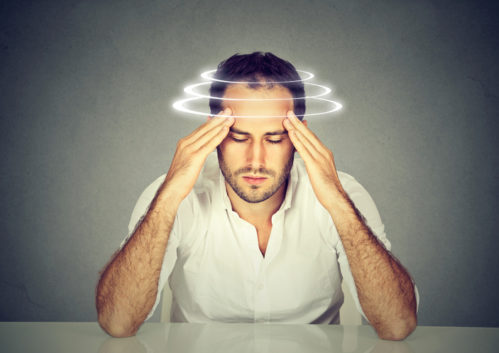
When someone suffers from dizziness, imbalance, and vertigo, vestibular rehabilitation therapy is an exercise-based program that promotes compensation for symptoms from inner ear deficits. Balance training and physical therapy are key elements in compensating for inner-ear symptoms.
Vestibular rehabilitation therapy seeks to help with the variety of vestibular problems individuals may face, and it can also help those who have a history of unresolved inner-ear issues.
The Importance of Vestibular Rehabilitation Therapy
If vestibular organs are damaged in any way, the brain can’t function as it normally would. Equilibrium and motion are not processed correctly, and there are a variety of symptoms that negatively affect a person’s daily routine.
If an individual is not able to adapt to injuries or damage caused to vestibular organs, the body will find ways to compensate, which may not be conducive to proper compensation. Exaggerated movements to adapt to balancing issues can actually worsen symptoms and bring on more issues, such as headaches, muscle tightness and fatigue.
While it takes time to retrain the brain to recognize and process signals, the balance system can be desensitized to movements that create the symptoms and issues caused by vestibular damage.
Vestibular Rehabilitation Therapy
Before a person can begin therapy, a qualified physical or occupational therapist must conduct a thorough evaluation. The therapist will review your medical history, as well observe and measure current functionality.
Once the results have been evaluated, the therapist will create a specific plan for the individual suffering from vestibular injuries or damage. A major part of therapy is balance training, as it is important to desensitize the balance system to actions that increase and provoke systems.
Included in the physical therapy are general exercises that will help to strengthen muscles. The exercises associated with vestibular rehabilitation therapy can actually make symptoms appear worse, as the brain is trying to process the new activities of the therapy. As long as an individual stays committed to the process, headaches, vertigo, dizziness and balance issues dramatically decrease or can even disappear.
The key is to stick to the routine, and stay committed to the process.
Vestibular Rehabilitation and Age
For older patients, it’s exceptionally important to partake in vestibular rehabilitation therapy.
Our muscle strength will decline as we age, and having vestibular damage can create significant medical issues. With impairments in balance, there is a greater chance that elderly individuals could fall or become injured. Balance training will help to provide compensation, and it is considered an important aspect of fall prevention.
If you believe you are a candidate for vestibular rehabilitation or would like more information, the friendly staff of Life Fitness Physical Therapy can work with you on creating a healthier life.
The longer you wait to improve physical ailments, the more your body will suffer down the road. Call today at 410-368-1026, or click here to find the location nearest you. To keep up with news and health tips, follow us on Facebook, Twitter, Linkedin and Google+.
